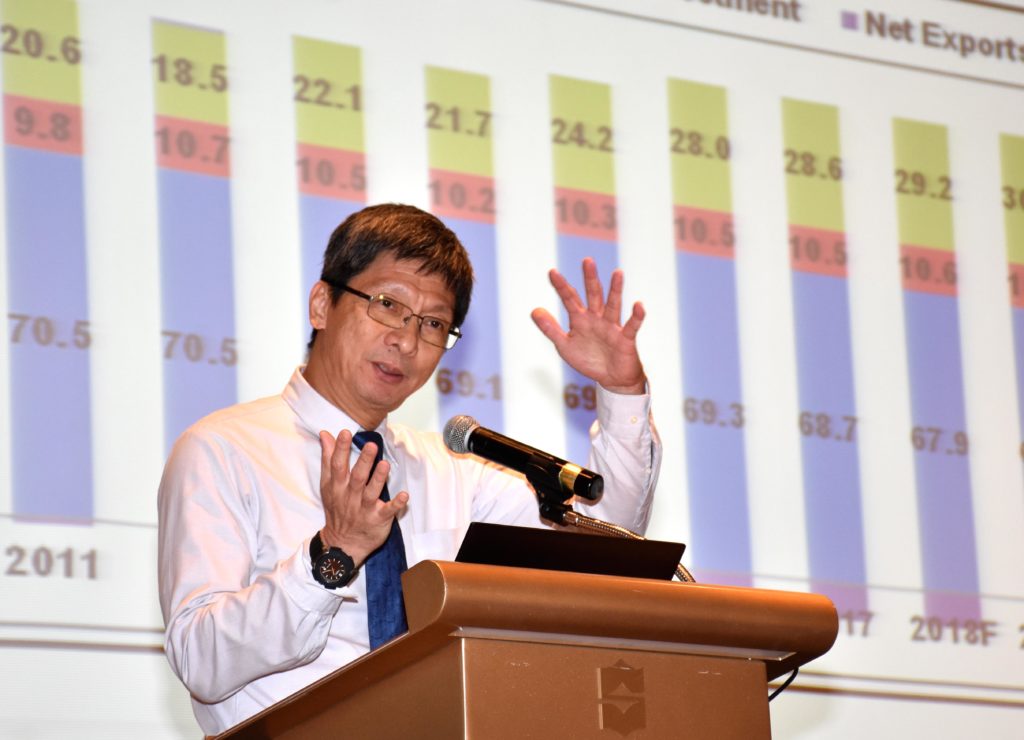
ING Philippines economist Joey Cuyegkeng
The Bangko Sentral ng Pilipinas (BSP) will likely jack up its key interest rates by a total of 75 basis points this year to curb upward pressure on consumer prices, with the monetary tightening possibly coming as early as Thursday’s monetary setting, an economist from Dutch financial giant ING said.
In a macroeconomic briefing on Wednesday, ING Philippines economist Joey Cuyegkeng said there’s a 50-50 percent probability that the BSP would raise its overnight borrowing rate today by 25 percent points to 3.25 percent.
If the BSP hikes rates at this first monetary setting for the year, it will be the first time since September 2014 that the central bank will take a hawkish move. The BSP’s overnight borrowing rate has been steady at 3 percent since June 2016. The last time the BSP tinkered with the monetary settings was in May 2016 when it brought down the policy rate to the all-time low seen today.
Cuyegkeng said the inflation-targeting BSP would likely make a move soon given that the January inflation rate had shot up to a three-year high of 4 percent, overshooting market forecasts of 3.5 percent and hitting the higher end of the central bank’s target range.
“This is to anchor inflation expectations and to remove some anxieties in the market that inflation is going to run away, (and ensure that) the central bank is there keep a lid on inflation,” Cuyegkeng said.
In the Philippines, it takes about 12 to 18 months for a change in monetary settings to have a big impact on the economy and financial system.
For the full year, ING sees inflation rate in the country creeping to 4 percent from 3.2 percent last year and 1.8 percent in the year before.
For next year, inflation rate is seen to ease to 3.5 percent. There will still be inflationary pressures especially as the next wave of excise tax rate hikes comes, Cuyegkeng said, adding however that these won’t likely be as “earth-shaking” as this year.
ING’s projected rate hike by the BSP is at the same magnitude as its outlook on the US Federal Reserve’s policy, which the bank expects to be raised by three times this year compared to only two hikes priced into the futures market.
Rob Carnell, chief economist and head of research at ING Asia-Pacific, said the markets had been taking a long time adjusting to the current environment.
“But bear in mind that that has been the case throughout the Fed’s tightening. It’s almost like (US Fed) Janet Yellen or in this case now, Jerome Powell, spoonfeeds the market (on) every new hike that they are willing to take, the next step or pricing the next tightening,” Carnell said.
“The futures have been incredibly slow to pick up on what’s happening. Perhaps they can’t be blamed because the Fed for years would forecast far more tightening than they ever delivered,” he said.
Rob Carnell, ING chief economist and head of research for Asia-Pacific